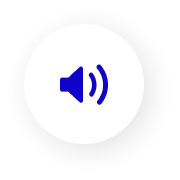| Today's Word Brought to You By | |  |
| | | | noun | 1. A medicine, treatment, etc., that has a strengthening or restorative effect. |
|
| adjective | 1. Having a strengthening or restorative effect. |
|
|
|
 |  | | "The antibiotic was a needed roborant for his infection." |
|  | | "My grandmother's chicken noodle soup gives me the roborant boost I need when I'm under the weather." |
|  | | "The doctor's roborant regimen included a minimum of 30 minutes of fresh air each day." |
|
|
|
 | | Latin, mid-17th century |
|
|
 | | "Roborant," used as both a noun and an adjective, comes from the Latin root "robor-," meaning "strength." As a noun, it denotes a specific thing with a strengthening effect. You could say, for example, "Some people might call it a placebo, but I think adding honey to my tea is a roborant to soothe my throat." ... | | Continue Reading |
|
|
 | Do you remember these words? |
|
| Thank you for supporting our advertisers. |
|
|
No comments:
Post a Comment